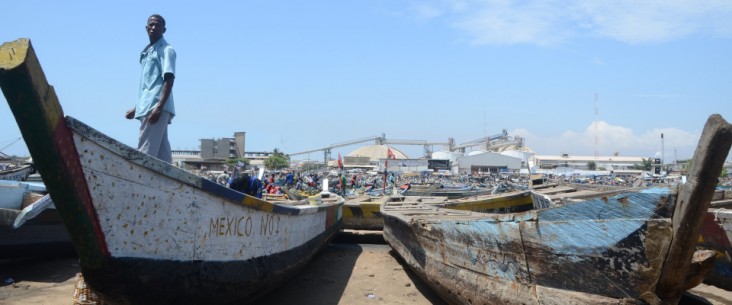- What We Do
- Agriculture and Food Security
- Democracy, Human Rights and Governance
- Economic Growth and Trade
- Education
- Environment and Global Climate Change
- Environmental and Natural Resource Management Framework
- Global Climate Change
- Conserving Biodiversity and Forests
- Sustainable Urbanization for Global Progress and Security
- Securing Land Tenure and Property Rights for Stability and Prosperity
- Sustainable Land Management
- Environmental Procedures Hub
- Knowledge Management for Environment and Natural Resources
- Tropical Forest and Coral Reef Conservation Act
- Environmental Policy Roadmap
- Gender Equality and Women's Empowerment
- Global Health
- Humanitarian Assistance
- Transformation at USAID
- Water and Sanitation
- Working in Crises and Conflict
- U.S. Global Development Lab
Speeches Shim

The United States has a long history of supporting conservation and natural resource management in developing countries. As the largest funder of international conservation in the United States Government, USAID delivers transformational impact and a significant influence on conservation practice. Whether by investing in Indigenous land rights in Brazil, ranger training in Mozambique, or sustainable fishing practices in the Philippines, USAID programs promote our partner countries’ journeys to self-reliance and resilience.
Learning from and sharing experience is essential for turning local projects into national and international efforts. Through research and cross-sector collaboration, USAID is building understanding of how conservation interventions can advance key development goals—and how other sectors, from governance to global health, can integrate with conservation for better outcomes. Each year, USAID reports annual results that highlight notable impacts across the globe, and the Biodiversity Conservation Gateway regularly spotlights Agency stories, new practitioner resources, and the latest evidence about conservation effectiveness and best practices.
Spotlight on: Indonesia
For the past 30 years, the United States has supported Indonesia’s commitment to natural resource management and environmental protection. Together, we have catalyzed changes in policy that have prioritized citizen participation in conservation, boosting livelihoods and helping communities save the resources they depend on. More than 250 villages have signed community conservation and livelihood agreements, confirming their commitment to engage in conservation efforts to protect forest areas bordering their villages.
USAID’s work toward establishing democratized, community-based natural resource management is the key to lasting change. As Indonesia grows more self-reliant in advancing its own solutions to address challenges, the likelihood that current and future generations will continue to benefit has risen exponentially. USAID is proud to be Indonesia’s partner of choice on its conservation journey; learn more in this 30-year retrospective of USAID’s natural resource work in Indonesia.
With USAID support, more than 1.4 million hectares of land in Indonesia (138 percent of the target value) are under improved and sustainable management.
Spotlight on: Jamaica
Over five years (2014-2019), USAID worked with the Nature Conservancy and local communities to achieve long-term conservation outcomes, maintain and restore critical ecosystems, and improve human well-being in five Caribbean countries: Dominican Republic, Grenada, Haiti, St. Vincent and the Grenadines, and Jamaica.
Pedro Bank and the southwest coast of Jamaica form a seascape that relies more heavily on fishing as a livelihood than any other part of the country, with limited alternative livelihood options.
An 800,000 hectare marine area, Pedro Bank hosts some of the most extensive and healthy coral reefs in Jamaica and is an important source of local income as a lobster and queen conch fishery.
The Southwest Cay Fish Sanctuary was established on Pedro Bank in 2012 to help replenish and maintain healthy fish stocks. USAID works to raise community awareness of the benefits of fish sanctuaries and has supported local community wardens to monitor and manage sanctuary activities—like Cedella Harvey. As Pedro Bank’s first female fisheries warden, Cedella strives to ensure there will still be fish left to sustain her children’s generation and those to follow.

Comment
Make a general inquiry or suggest an improvement.